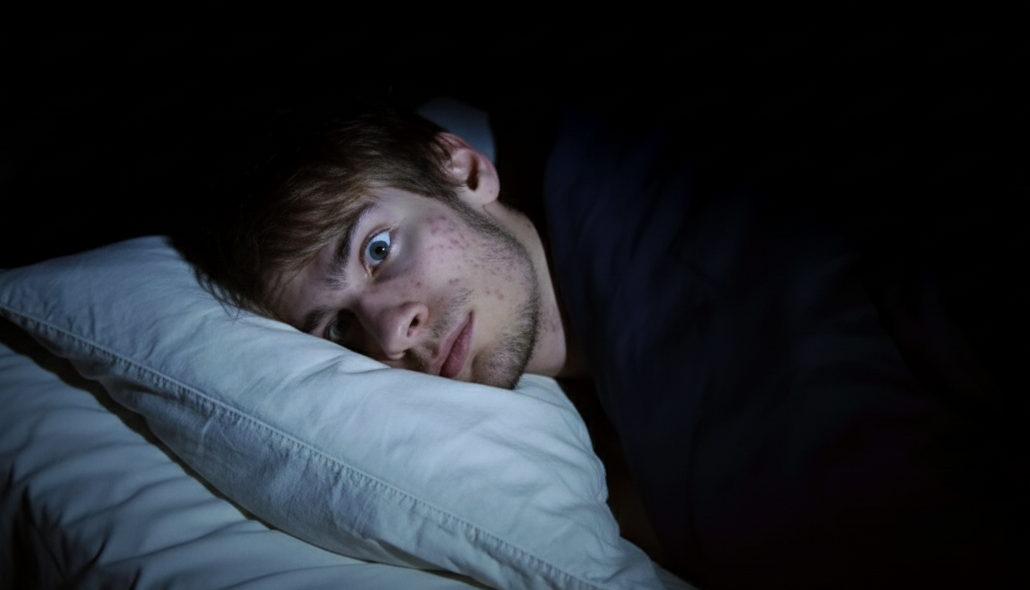Going through alcohol withdrawal can be extremely difficult, and one of the most challenging side effects is insomnia. This sleep disturbance often appears in the very first stages of withdrawal and, for some people, can last weeks or even months after other symptoms have subsided.
The impact of alcohol withdrawal insomnia is significant — it reduces the body’s ability to heal, affects emotional stability, and makes day-to-day life harder to manage. But what exactly are the symptoms, how dangerous is it, and can it be prevented?
Symptoms of Alcohol Withdrawal Insomnia
Insomnia linked to alcohol withdrawal is usually easy to identify. Common signs include:
- Difficulty falling asleep
- Waking up multiple times during the night
- Nightmares or restless sleep
- Feeling tired even after a full night in bed
- Anxiety when trying to fall asleep
- Waking up groggy and unrefreshed
This lack of sleep often makes other withdrawal symptoms worse, such as mood swings, irritability, and depression. Addressing insomnia is crucial because quality rest is essential for emotional and physical recovery.
Does Alcohol Cause Insomnia?
Technically, alcohol itself doesn’t “cause” insomnia — but withdrawal from alcohol does.
When you stop drinking, your body begins to readjust to functioning without alcohol. This sudden shift can lead to a range of withdrawal symptoms like nausea, tremors, irritability, and insomnia. Many people also experience intense anxiety, which can make falling asleep nearly impossible as the mind races and the nervous system remains overstimulated.
How Long Does Alcohol Withdrawal Insomnia Last?
Sleep issues can begin within hours after your last drink — even after moderate consumption. In many cases, insomnia is most severe within the first 12 to 48 hours of withdrawal but tends to ease as the body stabilizes.
For some individuals, especially those with a history of heavy drinking or co-occurring mental health conditions, insomnia can persist for several weeks. This period can be particularly challenging, sometimes even dangerous for those struggling with suicidal thoughts or severe anxiety.
Why Insomnia During Withdrawal Can Be Dangerous
Alcohol withdrawal insomnia poses two major risks:
- Mental and Physical Health Impacts – Sleep deprivation worsens mood swings, heightens anxiety, and contributes to depression. Physically, lack of rest slows the body’s healing process, making other withdrawal symptoms feel more intense.
- Relapse Risk – Persistent insomnia can discourage someone from continuing their recovery journey. The frustration of sleepless nights may tempt a person to start drinking again, just to get some rest.
Because of these risks, it’s essential to seek support when going through alcohol withdrawal and address sleep issues early.
How to Prevent or Reduce Alcohol Withdrawal Insomnia
There is no guaranteed “cure,” but certain lifestyle adjustments can improve sleep during withdrawal:
- Follow a Relaxing Bedtime Routine – Try reading, listening to calm music, or taking a warm shower before bed.
- Establish a Consistent Sleep Schedule – Going to bed and waking up at the same time every day helps reset your body’s internal clock.
- Practice Stress Management – Yoga, meditation, and breathing exercises can calm the nervous system.
- Eat Nutritious Foods – Omega-3s and protein-rich meals support brain health and recovery.
- Create a Restful Sleep Environment – Keep your bedroom dark, quiet, and cool.
- Avoid Triggers – Stay away from caffeine, nicotine, and high-stress situations before bedtime.
- Seek Natural Alternatives – Some people find relief with herbal teas, magnesium supplements, or melatonin (but check with a doctor before use).
Finding Professional Help
Managing insomnia during alcohol withdrawal can be overwhelming, and it’s not something you have to face alone. Professional help is highly recommended.
Treatment centers offer supervised alcohol detox programs where medical professionals monitor your withdrawal, provide medications to ease symptoms, and offer psychotherapy and group support. Addressing both the physical and psychological aspects of addiction increases your chance of a safe and successful recovery.
